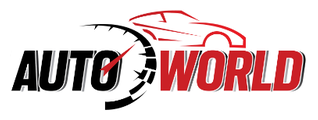
The 5 risks to avoid when selling your car to a private individual
Do you want to sell your car to a private individual rather than to a car dealership? This choice has certain advantages, but also disadvantages. In both cases, it is imperative that you be well prepared for the risks of selling used cars between individuals, whether you are a seller or a buyer. Here are 5 of the most likely risks and our technical tips to avoid them!
To sell a used car, it must not be pledged because this will prevent the new owner of the vehicle from registering it and applying for a gray card . This is the reason why it is preferable that the seller submit a certificate of non-pledge dated less than 15 days which does not indicate any administrative opposition for the sale of the vehicle for sale. He will thus be able to apply for the registration of the vehicle and obtain a new registration plate. In the event that the buyer realizes that the vehicle he has purchased is pledged, the sale must be canceled with the seller as soon as possible. He must recover his car temporarily at least, the time to regularize his situation, settle his debts.
As soon as the sale is concluded, the seller must apply for a transfer certificate in order to declare the transfer of the car online. As the seller, you will get a transfer code allowing the new buyer to register the vehicle in his name and obtain a certificate of sale. And don’t forget to cancel your auto insurance contract.
Another key aspect to remember is that the IRS considers the sale of a car as the sale of a capital asset. In other words, you will need to report any profits generated from the sale of the vehicle when you file an individual tax return. More specifically, the sale is reported on Schedule D of IRS Form 1040.
1. Check all administrative documents
the transfer certificate (CERFA), the registration certificate or the vehicle registration , the maintenance book, the certificate of non-pledge (or certificate of administrative status), the technical control if the car has more than 4 years . Also verify the authenticity of all necessary documents. If any of these pieces are missing, the transaction cannot proceed.
2. Sell a car without a technical control
From a legal point of view, it is forbidden to sell a car over 4 years old that does not have technical control. A vehicle for sale must have undergone the compulsory technical control and have validated it within 6 months before its sale . If it presents a follow-up after its passage at the technical control center , you will have 2 months to do it but the vehicle can still take place if the buyer wants it.
If the sale has already been made and the car becomes faulty, it is a lack of conformity. If you are a victim, it is because your seller did not respect the standards of a sales contract, you can therefore appeal to automotive case law.
3. The reflexes to have for the test of the car
The fact that the seller is alone during the test is a risk, it is preferable to be accompanied to anticipate any problem. Even better, choose slots during the day and during off-peak hours. The potential buyer should not try the vehicle alone even if he provides you with an identity document or another document ( driving license , passport), because these documents can be falsified.
If there is an accident during the test by the purchaser , completing a report is sufficient. Care must be taken to fill in all the information on the document and to indicate that the collision or the accident took place during the test of the vehicle .
If your car is stolen during the test , it is necessary to file a complaint immediately by declaring the theft to your insurance (2 working days by registered letter with acknowledgment of receipt). If these steps are taken late, you may be held responsible for any fines or infractions committed by your car.
The buyer gives a fake cashier’s check and leaves with the vehicle. Within 2 weeks, the bank will get back to you to warn you that the cashier’s check is a fake. The money is therefore no longer in your account, and the car is no longer in your possession. It is therefore advisable to verify the authenticity of the cashier’s check by contacting the bank issuing this check.
The false transfer
As a rule, a bank transfer is only possible if the account is funded. However, it is possible that an account was funded with a fake cashier’s check, or a fake check. When the bank realizes this, it cancels the transfer. For example, the buyer and seller close the sale, the check is delivered, the seller cash it in, and the money is visible in the account. Except that the time for processing and confirming checks takes several weeks and the bank during the check realizes the false check and therefore withdraws the money from the account. To avoid this risk, check the origin of the account and if it is often replenished and do not contact the bank with the number on the check. In the case of a forgery, it may be an accomplice.
Counterfeit banknotes
Although this method is no longer common, the risk should still be emphasized. You should know that paying more than € 1,000 in cash to a professional is prohibited. If the transaction is between private individuals, it is preferable to establish written proof if it exceeds 1,500 €. If the payment is therefore made in cash, check the small denominations (€ 10, € 20, € 50) more closely, at least as sensitive as the large bills (€ 100, € 200). It is therefore more judicious to wait until the opening days of your bank , to benefit from the banknote checking device, and thus to verify its authenticity.
Payment greater than the value of the vehicle
If you list your vehicle for sale and a buyer offers you a cashier’s check for an amount greater than what you are asking for the sale of your car (for example, a check from another transaction that has not been used), and ask you to send you back the difference, run away! When the bank realizes the check is forged, you will lose the difference you paid back, and the car.
Face a hidden defect
The used car you just bought suddenly breaks down? And the cause is not the wear and tear of the vehicle but a defect that was concealed from you by the seller ? For the problem to be considered a hidden defect, the defect must be prior to the sale and not apparent. It must not result from normal wear and tear of the vehicle. This declaration of hidden defect must be made within 2 years of the sale of the car.
The defect must render the vehicle unusable in part or in whole. In this case a cancellation of the sale is possible as well as an amicable arrangement (the repair of the vehicle by the seller to an approved professional). Otherwise, the buyer can call on an automobile expert to determine the causes of the breakdown or the defect on the car. If the dispute persists and the seller does not want to hear anything, it is possible to resort to legal action, which remains a difficult, expensive and time-consuming procedure.
A solution to avoid all its problems: Cap Car
CapCar acts as a trusted intermediary between the seller and the buyer of a used car and offers free automotive expertise that can prevent the risks of the sale between individuals that we have just seen. On all cars, CapCar offers:
A check of the administrative situation of the car preventing the risk of a pledged car, or even a missing technical control
A 100% secure transaction method and CapCar taking charge of the elements inherent in the sale of the car between the seller and the buyer in order to avoid any scam.
In addition, the car sold will be guaranteed for at least 6 months , allowing you to limit the risk of complaints from a dissatisfied customer following a breakdown that has occurred after the sale.


